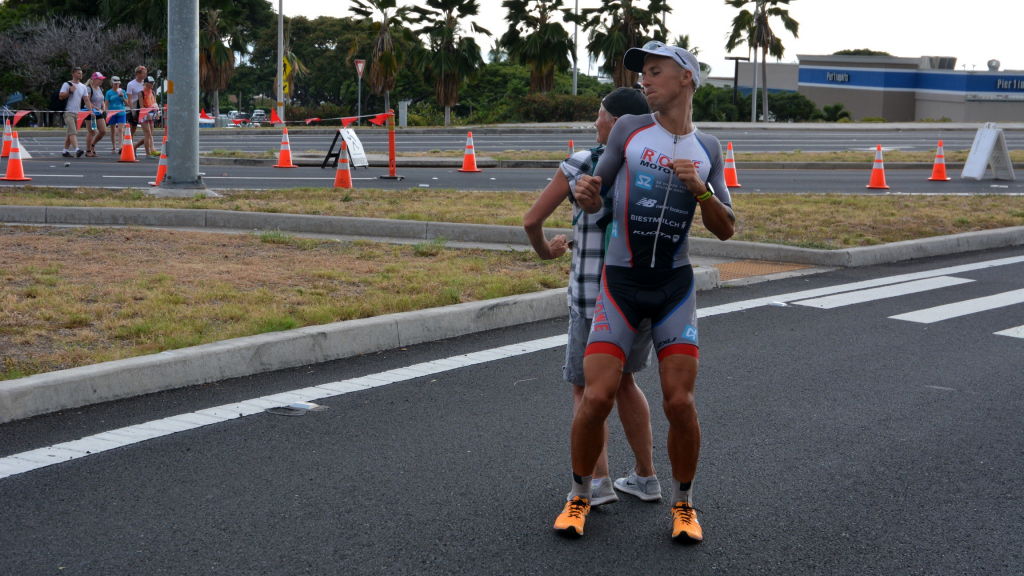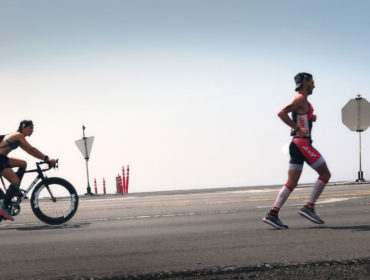We should not forget that our brain demands energy and recovery. Proper brain function consumes 20% of all available energy. That’s quite a lot. At the end of a long season we hear many athletes say: “My head feels so empty and lacking energy, even worse than my body.” A race in which we have competed at full throttle can affect an athlete more mentally than bodily.
Studies have shown that pronounced body strain, especially when getting close to the own limits, is leading to an increased activity of the brain too. The energy demand can exceed the energy supply during periods of extreme neuron activities.
Transiently an imbalance of energy supply can arise in certain brain areas that are highly active during phases of peak performance for example during a race. Glucose is known for being the food for the brain, if supply is not guaranteed anymore, when hypoglycemia occurs, then this may be one reason why you have to discontinue a race. Movement coordination is hampered, you lose control over your body.
Energy deficits in the brain lead to a feeling of fatigue and exhaustion
This activity of the central nervous system requires a lot of energy and burns above all glucose and ketones. The closer an athlete moves towards his/her personal performance max, the greater the nerve cell activities measured in the brain and the higher the energy consumed. In the brain, an energy deficit obviously leads to a feeling of fatigue and exhaustion and to a conscious decision to quit a race or a training session before the peripheral metabolic situation forces us to do so.
When I first wrote this text I was not familiar with the importance of ketones as fuel for the brain cells. As I revise these paragraphs, I want to insert shortly what I learned during the last months.
Excursus: the brain loves ketones as energy source
The brain is happily deriving energy from ketones. It seems to be its perfect nurture protecting the cell from degeneration. Why then may ketones protect athletes from hitting the wall? One answer may be that the far better tolerable ketones compensate for a glucose energy deficit in the brain.
But you have to be keto-adapted to tab your fat stores, the source of ketones. Only then the body is able to deliver the ketones demanded. Our fat stores compared to our glycogen stores are sheer endless (even in a lean person ca. 40.000 calories). Only if you are keto-adapted, you will be able to fuel your brain with ketones accordingly. You never run out of ketones. Ketones seem to be a more efficient and less harming fuel than glucose, providing more energy per unit oxygen used. Studies suggest that a ketogenic diet increases the number of mitochondria, so called “energy factories” in brain cells.
The ketones don’t foster the production of oxygen free radicals* as does glucose. Oxygen free radicals are a byproduct of the cell metabolism. If there is a surplus that the buffers cannot neutralize anymore, then the structure of cell membranes gets injured, they get porous like having tiny holes. These lesions contribute to a flare-up of the inflammatory processes ongoing in our bodies.The immune system is under permanent pressure. The overstressed immunity may lead to illnesses or allergies etc.
Less carbohydrates/glucose produce less oxygen free radicals and cause less harm to the cells implying less inflammatory stimuli. Less pronounced inflammatory processes mean quicker recovery.
This was a very superficial excursion. About this huge and exciting controversial topic later in more detail.
The brain is a gigantic computational processor
It processes thousands of incoming stimuli from the different cells, organs, tissues which make the periphery of the body. The actual computation is then put into relation with sets of values, that have to be kept within a certain range. If otherwise life is threatened. This is the kind of balance work our brain is permanently busy with. The accounted results are sent as outgoing signals from the brain into the periphery, parameters are adjusted according to the actual needs. These processes are ongoing at any moment of time. Currents of distinct in- and outgoing signals create patterns, patterns from which body conditions, and feelings emerge.
Hard-wired connected neuron nets form highly structured regulatory circuits within the brain that are connected, not necessarily hard-wired, with cells, organs, glands, tissues, glands etc. and thus control the body functions. Among these are body temperature, heart frequency, blood pressure, blood sugar level, fluid balance, muscle co-ordination and balance and many more. These control systems work with sufficient safety margins, which means for example that we drop out of a race before our body temperature, blood pressure, fluid balance, blood pH etc. turns to be deleterious. That is the reason why an athlete even at the point of complete exertion does not need ICU treatment, but recovers within minutes.
Feeling physically fit, yet the performance is flawed
Many athletes know the kind of fatigue that doesn’t go along with the feeling of complete exertion. It is this feeling of not being able to push it more. It appears that due to mental exhaustion or reduced nerve cell activity, no additional muscle motorneurons can be activated. The muscle is not used to the full, yet the brain is. As an exhausted brain doesn’t hurt like an exhausted muscle, we perceive our condition in this situation differently. We are pushing and pushing, but nothing goes.
The brain needs to be trained like a muscle. Like training you muscles and technical skills, brain/mental training should be made up of active and relaxing phases. It seems that under training conditions nowadays it’s not so much the difference between body fitness that decides about winning or losing, but it’s the mental strength that tips the scales.

The brain does not like monotony
The brain needs to be challenged to keep up and/or improve its dynamics and flexibility. Whilst training, we should envision the most different situations that may occur in the race and analyze how our body might deal and adapt to the change. Nothing should catch us by surprise, no opponent, no pain, not the loneliness on the course.
In the very end the race ends in the brain!
*Increased oxygen free radicals are a hallmark of aging, stroke and neurodegeneration. With increased energy reserve, neurons may be able to ward off disease stressors that would usually exhaust and kill the cell.
You want to know more?
Stomach and gut belong to the most stressed organs
Brain and gut in the focus of the race






